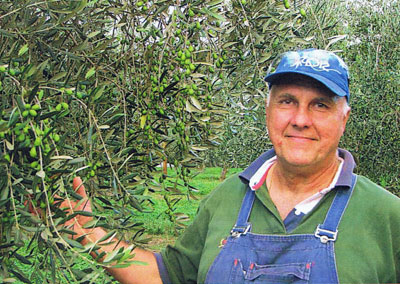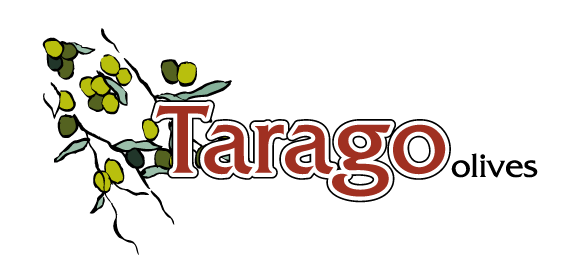About Tarago Olives
Established in 1996 by Sam Cabbabe, Tarago Olives is a privately owned and operated boutique olive grove in West Gippsland, Australia – a premium olive producing region.
Situated on the hill overlooking the Tarago Reservoir, Tarago Olives has 1200 olive trees, of the Nevadillo, Manzanillo and Frantoio varieties.
Sam Cabbabe has lived the life of an adventurer. After a 40 year career in the Middle East and Singapore as an airline pilot, when retirement approached, Sam bought 32 hectares of prime agricultural land overlooking the Tarago Reservoir catchment.
He planted 1000 olive trees on 4 hectares as a hobby and immersed himself in farming, planting native trees and set about learning how to produce the finest olives. His first harvest in 2005 yielded just 400 kilos of olives. This in turn made 80 litres! Year on year, his crop has increased in size and improved in flavour and he planted 200 more olive trees. He always limits the tree height to 3.5 metres.
The Olive Growing Process
As with all farming, the method the farmer uses greatly affects the quality, quantity and flavour of the fruit – the preparation of the soil, what the tree is fed, how it is pruned. However, the weather also plays a significant part in shaping the quality of the crop and olive trees don’t like extremes ie wet feet or drought. Tarago olives are grown without chemicals (where possible) on the sloping hills of Jindivick.
In 2008, working in conjunction with Tarago Catchment Sustainable Farms Project, Sam introduced a colony of Dung Beetles to his soil because of their many positive attributes. When Dung Beetles bury their dung, the nutrients are incorporated into the soil at plant root level, giving a natural beneficial boost feed to the roots of the olive trees. The digging activity of the tunnelling beetles also aerates the soil enabling improved water absorbtion.
The trees are hand pruned, after which, Sam sprays white oil on his trees. He then analyses the soil to determine what they are lacking and feeds them accordingly, supplementing whatever they lack.
The olives are harvested between May-July, by hand in small batches. The trees are combed and the olives gathered, washed, crushed, kneaded and the pumice separated and removed from the oil. Cold pressing occurs as soon as the olives are picked, to produce the finest tasting olive oil.
Flavours in olive oil are determined by factors such as the type of olive (varietal), ripeness at harvest, growing conditions (climate, soil type), crop maintenance (irrigation, pest control), handling of fruit from tree to mill and the milling process itself.



New products…
Being an entrepreneur, once he’d mastered producing exceptional olive oil, Sam created a variety of new products and set up a test kitchen. He now produces unique products such as olive paste, olive paste jam and dried olive paste, and is putting the final touches to his cheese and chocolate olive range! Unsurprisingly, his unique products have become favourites among the chefs of leading Melbourne restaurants. He produces each product in sizes suited to individuals as well as commercial enterprises, with over 25 items in his range. There are more in development…


Buy Tarago Olive Products Online!
Be sure to visit our online store where you can purchase a range of Tarago Olive products today!
